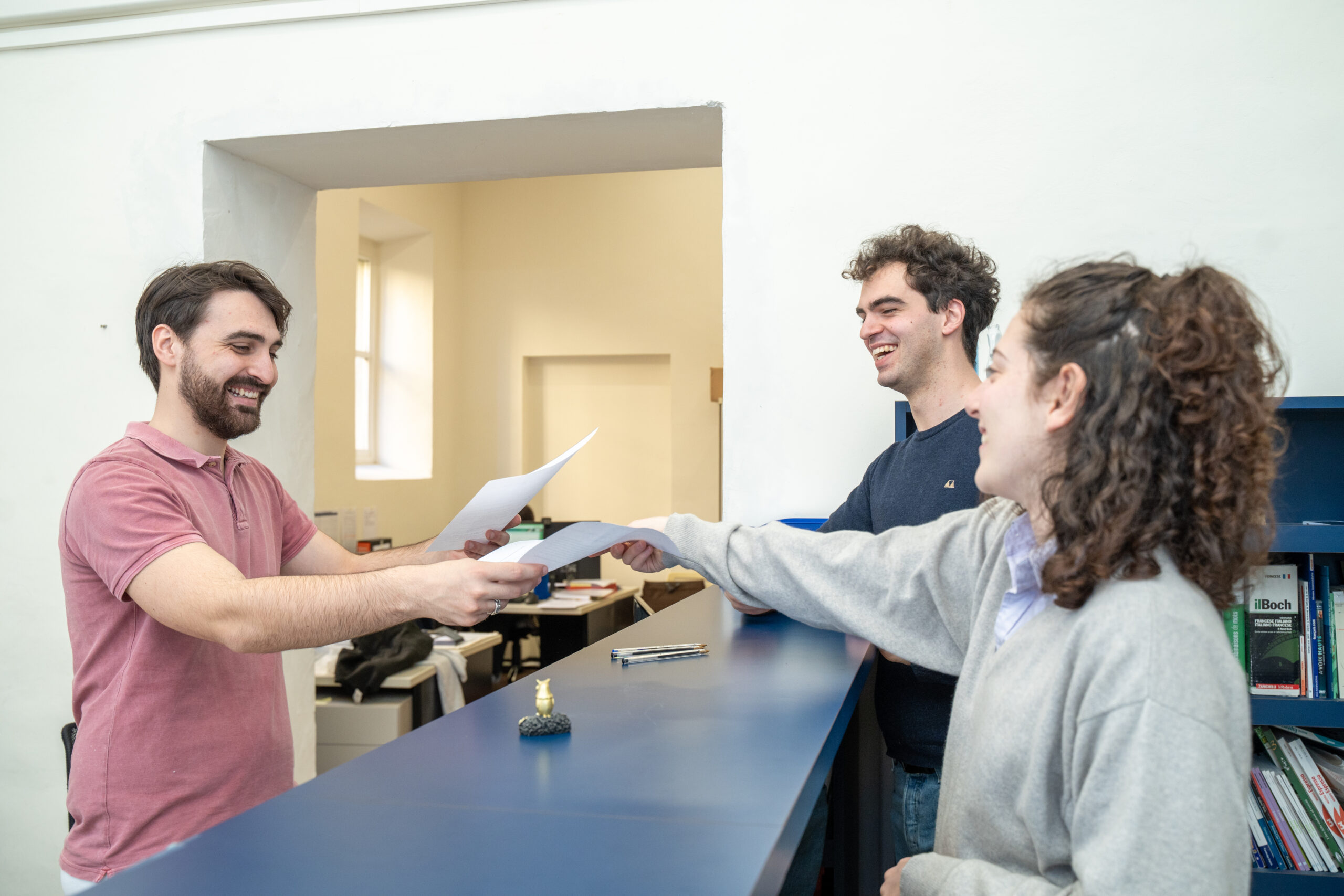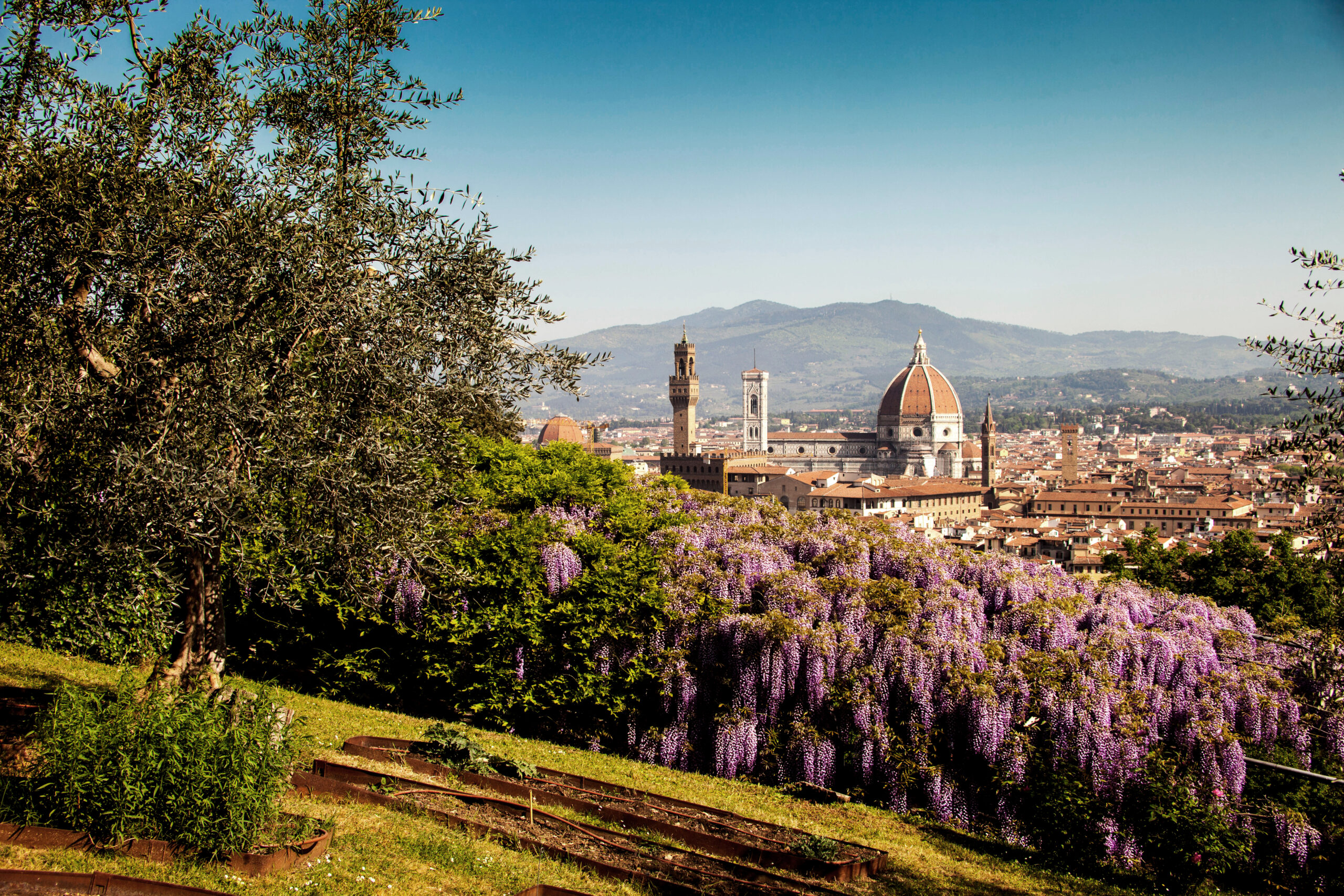
Practical Information
Future and Current students, will find valuable practical information upon their arrival in Italy. An orientation booklet tailored to each campus will be provided, offering comprehensive details on local resources and pertinent advice. This initiative aims to facilitate a smooth transition and enhance the overall experience for students.
Italian Climate
Italy enjoys a temperate climate, thanks to the mitigating influence of the sea and the shielding effect of the Alps against chilling Northern winds.
Nevertheless, there is significant climate variation from North to South: the Alps experience very cold winters, while the South and coastal regions have milder winters. Summers are intensely hot, particularly in the South, and generally dry. Coastal areas benefit from sea breezes that temper the temperature, while mountainous regions offer a pleasantly cool climate.
- Florence, thanks to its central location in Italy, experiences a humid climate with continental features. This translates to cold winters and hot, humid summers. Autumn and spring showcase a combination of sunny days and rainfall. The city witnesses temperatures ranging from 0°C in winter to 35°C in summer throughout the year. Occasional snowfalls can be expected in winter, and like Milano, Florence is susceptible to heavy fog. Rainfall is moderate, and the winter season tends to be relatively drier compared to other times of the year.
- Milano, due to its geographical location, encounters a humid climate with continental traits, characterized by cold winters and hot, humid summers. Autumn and spring bring a mix of sunny days and rainfall. Throughout the year, temperatures can range from 0°C in winter to 35°C in summer. Winter sees occasional snowfalls, and the city often experiences heavy fog. While there is a moderate amount of rainy days, the winter season tends to be relatively dry compared to other seasons.
- Turin, located in the northwest, shares a similar humid continental climate with cold winters and hot, humid summers. Autumn and spring in Turin offer a blend of sunshine and rainfall. The temperature spectrum spans from 0°C in winter to 35°C in summer. Winter brings occasional snow, and fog is a characteristic feature. The city sees a moderate amount of rainy days, with the winter season exhibiting relatively drier conditions compared to other seasons.
- Mantua, situated in the northern part of Italy, also encounters a humid climate with continental characteristics. The winters are cold, and the summers are hot and humid. Similar to Milano and Florence, Mantua experiences a mix of sunny and rainy days during autumn and spring. Temperature fluctuations throughout the year range from 0°C in winter to 35°C in summer. Winter may bring occasional snowfall, and fog is not uncommon. The city experiences a moderate amount of rainy days, with the winter season being relatively drier than other seasons.
The Cost of Living
The cost of living and spending patterns can vary significantly based on individual preferences, needs, and the specific location of residence. Therefore, offering advice that universally applies to everyone is challenging. Upon arrival in Italy, it’s advisable to have immediate access to cash for travel, food, and other expenses. Planning for around €200-€250 in cash is recommended to cover initial needs. When exchanging currency, carefully consider the timing to secure the best exchange rate. It’s generally not recommended to carry large amounts of cash unless it’s essential.
Before arriving, meticulously plan your budget, taking into account all anticipated expenses, including unforeseen and emergency costs. The following is a list of potential future expenses that may arise (these figures are approximate and should serve as a general guide):
- Accommodation: Costs will vary based on the type of housing and location.
- Utilities: Expenses for electricity, heating, cooling, water, and internet.
- Groceries: Budget for regular grocery shopping and daily meals.
- Transportation: Consider costs for public transport, fuel, or maintenance if you own a vehicle.
- Health Insurance: Depending on your situation, you may need to allocate funds for health coverage.
- Miscellaneous: Plan for unforeseen expenses, social activities, and personal needs.
It’s crucial to be flexible and adjust your budget as needed, considering personal circumstances and priorities. Regularly reviewing and updating your financial plan will help you stay within your means and be prepared for any financial challenges that may arise.
Food
€ 150 – € 200 per month
The approximate prices of some basic items are listed below (in euros):
- Milk: € 1.20/Litre
- Bread: € 4.00/Kilo
- Butter: € 1.70/250 gr
- Beef: € 9.00-19.00/Kilo
- Chicken: € 8.00-10.00/Kilo
- Rice: € 1.70-2.50/Kilo
- Pasta: € 0.80-1.20/Kilo
- Mineral water: € 0.50-1.00 Litre
Social life
€ 100-200 for month, but it really depends on your idea of social life.
- Cinema: € 9-11
- Eating out: € 20-35
- Pizza: € 15-20
- Fast food menu: € 6.50
- Happy hour: € 8-12
- Clubs and bars: € 10-20
- Concerts: € 40-50
- Private gym: € 40-50/month
- University gym: € 15-20/month
Travel Costs
€ 20-30 per month
- Public transport: approximately € 22 per month depending on the city
- Taxi: € 15-20 cab fare
- Bike sharing: € 9.00 approximately
Mobile SIM
Upon your arrival, you will need to purchase a SIM card for your mobile phone, and you can choose between a prepaid or postpaid option. Italian companies offer a variety of traffic plans, so it’s important to carefully select one based on your needs and review the terms and conditions.
Many public places (cafes, malls, hotels, libraries, etc…) provide free Wi-Fi access, so if you have a notebook, laptop, or smartphone, you can either ask for the password or connect directly if an open and free connection is available. Alternatively, you have the option to purchase an internet key, which is a USB device that plugs into your laptop. It is reasonably priced (typically ranging from €10 to €30 per month, depending on the hours/traffic allowance, plus the cost of the key) and can be a convenient short-term solution.
Useful Numbers, Mail & Phone Services
USEFUL TELEPHONE NUMBERS
For emergencies such as police assistance (Carabinieri), State Police, Emergency Health Assistance, and Fire Emergency, dial 112.
MAIL SERVICE
The national mail service, “Poste Italiane,” operates from 8 am to 1:35 pm, with extended hours in some locations, especially in Milano, where offices may remain open until 7:05 pm. Stamps can be purchased not only at post offices but also at tobacconists and bars displaying a “T” sign. Certain services, like registered mail, are exclusively available at post offices. In addition to traditional mail services, “Poste Italiane” provides banking services, including checking accounts and pre-paid credit cards. Visit www.posteitaliane.it for detailed information about services, office locations, and timetables.
PHONE SERVICES
Various companies offer phone services with different rates based on factors such as the time of day and the type of call.
While most homes have a fixed telephone line, mobile phones are widely popular. Different companies provide mobile phone services with varying rates. These companies offer the option to activate prepaid cards (the most economical choice) or contracts.
To sign up with one of these companies, you’ll need:
- A valid ID card or passport
- Your codice fiscale
Activation of your card typically takes a few hours.

